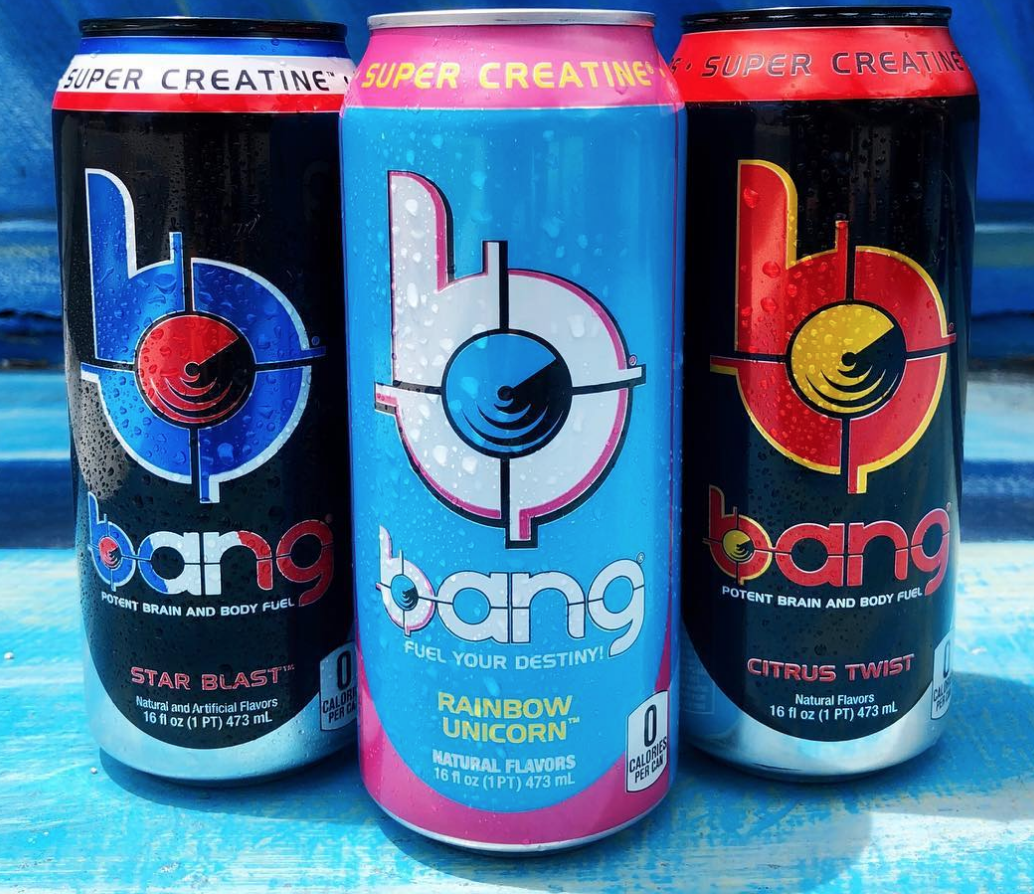After winning a $175 million award against Bang, one of the largest trademark infringement awards in U.S. history, Monster Energy Co wins another $293 million lawsuit against rival Bang Energy for false advertising regarding it’s “Super Creatine” content in their energy drinks.

For those that are unfamiliar with creatine and the fitness industry, creatine is substance produced naturally in your muscle. When doing any weightlifting or high intensity work outs, your muscles will produce creatine to provide the energy to carry out those actions. Creatine is also thought to improve overall strength, increase lean muscle mass, and help muscle recovery during a workout. As you can probably guess, creatine is a very popular supplement among weightlifters and athletes. Not only does creatine benefit muscles, but creatine also has possible benefits of improving one’s brain function, such as enhancing mental focus, and reducing Alzheimer’s and Parkinson’s disease. Utilizing these speculated benefits, Bang claimed their Super Creatine is water soluble, meaning, the creatine is easily able to cross the blood-brain barrier providing these benefits.
Now, I’m sure many are now wondering if the “Super Creatine” was real. And if not, was there any benefits at all? Well, from the false advertising claim it seems the Super Creatine does not provide the benefits mentioned. In fact, there is speculation on whether the “Super Creatine” consists of any creatine at all!
Moez Kaba, who led Monster’s trial team with his partner John Hueston, said the jury awarded Monster nearly $272 million for false advertising, $18 million on claims that Bang interfered with its contracts with retailers for prominent shelf spaces, and $3 million on claims that Bang stole trade secrets from former Monster employees it recruited. Previously, Monster had also won a $175 million award in a related trademark case. That along with Thursday’s verdict were two of the biggest awards in the history of the federal Lanham Act, which governs both false-advertising and trademark law.
With all these facts known, Bang alleged there was no harm done because no one bought Bang for the “Super Creatine.” But what do all the gym bros and gals think? Or anyone else who drinks Bang? Were you aware Bang was advertising “Super Creatine”? Was it the reason you bought the drink? Did you feel any of the benefits advertised by Bang? What do you think “Super Creatine” is?
Set up a consultation with us to better protect your property and learn more about trademark law. You can submit a consultation request at the bottom of this page: https://madan-law.com/about/ . Or give us a call today!
